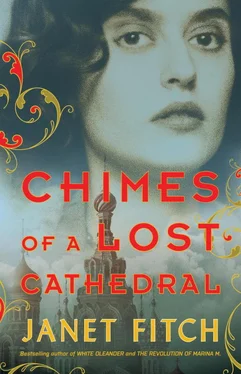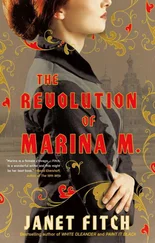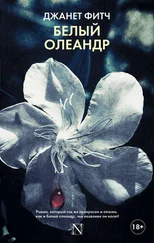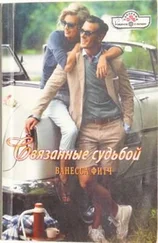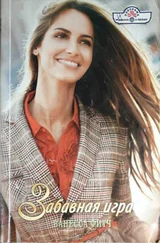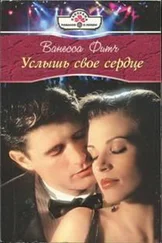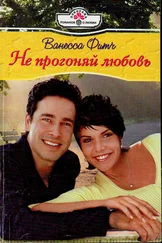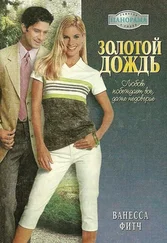Genya and I stared out the window in the corridor at the thousands gathered on the platforms at Nizhny Novgorod, his arm around my neck. I had not yet visited such a big city with the Red October. I was aware of how we looked together, the strapping Soviet hero and me, the Red Madonna in my kerchief, our determined profiles. Like figures painted on a train. And how he loved this, waving from the window. And why shouldn’t they cheer? Nizhny was a Soviet citadel. The workingmen of this Volga metropolis knew very well what awaited them if they lost. Even as they cheered the Red October, I suspected there would be those here who could just as easily turn into a mob, become a pogrom. But we were here for a specific job, to solidify the populace for the revolution, not to fight a cosmic war against the forces of unreason.
There were cheers, but I felt their fear underneath, their desperation. An edge of panic, though the front was still far away. Could we reassure them? No, but that was not our purpose here. It was to steel them, anodize their fear into a reckless courage.
And then came the practiced readying of the train for the literary-theatrical agitprop show.
I stood in the crowd, watching Genya take center stage in the boxcar that was the Theater of the Future.
“Comrades!” he shouted.
Who’s the shadow on the wall?
The one who crawls
Under the bed. Behind the shed?
The one they said
Except for him, or him,
or her—
He pointed at members of the crowd.
We might have saved it all.
People glanced nervously around themselves, as if to say, Not me. I’m here.
When your grandkids ask
Where were you
when Kolchak came to call?
You want to be the one to say
“I hid in the cellar, mal’chik.
I saved my skin but not my soul.”
“No!” they began to shout. “For shame!” Was it the crowd or our actors, wandering among them, stirring them up?
Now he opened his arms, as if to embrace them.
Without you, there’s nothing.
No grain in the sack
No bullets in the guns
No trains on the tracks.
Without you, the sun won’t rise in the sky!
Without you, the moon won’t glow!
Who is walking with us?
Who will fight by our side?
The roll of thunder shook the ground. People waved their caps, held up their babies as if to be blessed. How brave they were, with the front still five hundred miles to the east.
I made my way to the kino car, to prepare it for the screenings. Inside, the projectionist was readying himself for the rush after the speeches with his usual deep knee bends and great exhales, shaking out his legs as if he were about to run a race. He checked his films, while two soldiers and I straightened out benches, opened the windows, and pulled down the shades. I settled the first of the gramophone disks onto the turntable and went forward to use the privy in the next car one last time. Since the baby dropped, I was peeing a hundred times a day.
When we heard them sing “The Internationale,” we knew it was our turn. We opened the doors of the darkened carriage, signaling we were open for business. The soldiers got the people lined up and I helped them into the car—children and mothers, working girls and machinists, prostitutes and soldiers and peasants who might never have seen a kino before, packing them onto the benches. A woman had chickens in a basket. Should I make her leave them outside? No, she would just set them in the front with me. “There’s room for a few more,” I shouted. “Squeeze in a little there.” Just as Misha had done in a far different life, packing sitters onto benches for Mina’s camera, but without this enormous belly—it grounded me, it gave me a certain authority. Finally, we were at capacity. “No smoking, Comrades. Film can burn in a glass of water.” Amazing how many bodies we could squeeze into the train car, knee to rump all the way to the back. The lowered shades on the windows glowed golden as we shut the doors. I prayed no one would panic. Soon the air grew pungent with the stink of hot, unwashed people.
As the film flickered through the gate, I stayed close to the door, cranking the gramophone to accompany the showing of Day One of the Revolution. The first time I saw it, I’d been startled to find they’d used Solomon Katzev’s photographs of the Pavlovsky regiment marching behind their band in Palace Square, and the red flag flying over the Winter Palace. Near the end, a shot from the first anniversary left me speechless—a spectacular though somewhat blurry night shot of a hydroplane flying low over the lighted ships on the Neva. It never failed to give me a shock. My photograph had made it all the way from the prow on the Rostral Column to this steaming kino in Nizhny Novgorod.
Sweat dripped down between my shoulders and pooled into the waistband of my skirt, soaking my blouse. The air was as thick as felt. Yet I never got tired of seeing the people’s faces as they watched the films. Some watched dumbly, fascinated by the flickering display. But with others, you could see the cells of their brains putting connections together, realizing they were a part of this . They were watching their own story, major players in the drama that unfolded not only in front of them on our little screen but outside the doors of this railway car. It was they who were propelling history. Not the senseless violence of pogroms acted out of their own frustration and rage but forward movement, toward a better world. Just as Lunacharsky had hoped from his Revolutionary Carnival. Entertainment and enlightenment together could work to defuse mob rule and transform it into a citizenry. I found my script and read to them an excerpt from Lenin’s speech at the dedication of the Marx Memorial last October, and then we showed one last newsreel about the battle to preserve Soviet Russia—and had to open the doors. It took about seven minutes in all. No one fainted, no one burned to death. Only six more hours to go.
Outside on the platform, our sailors made speeches to local soldiers and played recordings of Trotsky and Bukharin on gramophones. Listening to that cacophony, I couldn’t help wondering whose gramophones those were. In what rooms had they sat, what waltzes and tangos had they played? What had become of Kolya’s gramophone, to which we’d danced the tango? Ah little feet, where are you now? It was probably performing hard service on a train platform just like this, the RCA dog with the cocked head… His Master’s Voice. How funny to think of his perplexity at hearing Trotsky’s rousing voice coming through His Master’s bell. All that was a century ago—no more tangos, only speeches and choruses of “The Red Army Is Strongest of All.” I felt tears upwelling, and shook myself. I was an agitator on the Red October, how dare I be nostalgic for such things. Only I’d gotten so sentimental lately. It must be the pregnancy.
People were watching me. It was important how we conducted ourselves. Women needed to learn how to be in this new world. They needed our example. I had thought that bigheaded at the time, when Sergeevna had said it, but here I noticed women eyeing me with frank curiosity. This mere girl, part of the Red October ! And pregnant too. Anybody can certainly do anything now, can’t they? I had to straighten up, though the June heat was terrific. Strike the correct pose, neither humble nor arrogant, friendly, brave, efficient, compassionate, but tough-minded enough for war. Like the heroic woman on the side of the train, posed before the factories with her firm steady face. As though I expected someone to come paint me.
Читать дальше
